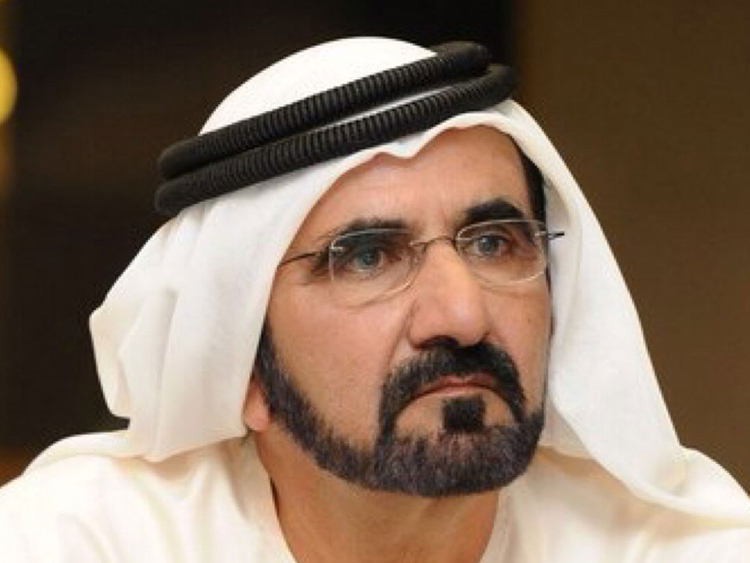Yesterday the world celebrated International Translation Day, honouring the instrumental role translators play in bridging civilisations, cultures and generations.
The knowledge that translators preserve through the ages forms the foundation of modern civilisations; this makes translation one of the most important elements in developing nations and people, and in promoting a culture of understanding and tolerance.
We are proud today of the great legacy of the Islamic civilisation, which was one of the most impressive periods in history for scholarship and scientific development; the knowledge acquired then still benefits the world today.
.@HHShkMohd: Reigniting Our Civilisation a Resolution, Not a Sloganhttps://t.co/fe3hwh67Pu pic.twitter.com/T4bgB5BknW
— Dubai Media Office (@DXBMediaOffice) October 1, 2017
محمد بن راشد:الترجمة كانت ولا زالت وسيلة تواصل حضاري بين الشعوب،وأداة لنقل المعرفة بين الأمم،وعامل أساسي في تقدم البشرية بشكل متعادل ومتساوي pic.twitter.com/CTQr8aLgKQ
— Dubai Media Office (@DXBMediaOffice) October 1, 2017
The dynamic translation movement of that era brought together the most notable scholars from different cultures to share ideas and translate the world’s knowledge into Arabic; they translated the classical canon to share the works of the world’s greatest philosophers including Socrates, Plato and Aristotle.
Thus the Arabic Translation movement led to an intellectual and scientific revolution that strengthened and enhanced the Islamic civilisation itself.
We look back at our history of scientific enlightenment because it is important to remind ourselves of our deep roots, but I write this now with my vision set clearly on our future.
With that, the Mohammad bin Rashid Al Maktoum Global Initiatives (MBRGI) has launched The Translation Challenge, a concerted effort to take 11 million words and five thousand videos of world class educational content, and translate them into Arabic.
It is a regional initiative that calls on volunteers from across the Arab world to come together to translate online libraries of science and mathematics materials into Arabic.
Our aim is to make accessible the highest standard of educational material to all our ambitious students.
We hope to revive our deep-rooted thirst for knowledge, and create strong regional bonds through this initiative that seeks to contribute to the rebooting of our region and its peoples.
We focus on science and mathematics because they are at the core of innovation, which is the key to a successful future.
Science and math are everywhere we look, in the sun when it rises and sets, and in the seasons when they change.
Scientists and mathematicians learn from our universe, and gather the knowledge needed to combat some of our biggest challenges, including climate change and fast-spreading viruses and disease.
They also have the tools required to create innovative products and services that in turn improve citizens’ lives and contribute to economic development. We want to empower young Arabs so we may nurture a generation of innovators who will change the world, the way their ancestors did.
Fifty-four million Arabs were illiterate in 2015. Today, Arabs make only 1% of contributions in the research and development sectors.
We once cultivated the most influential scientific minds in the world, but only one Arab scientist has ever been awarded the Nobel Prize, out of 626.
The Translation Challenge seeks to redirect this path, and see us headed back to our routes of academic excellence and global contribution.
Our future will be defined by the decisions we make today, and by the legacy that we leave our children.
Our goal is to create hope and build a foundation for a future that is based on positivity, innovation and the spirit of openness. We also seek to continue our Islamic tradition of searching for knowledge and scientific excellence.
The Islamic Golden Age was not only a time of intellectual growth, but also a time of economic development and regional stability. When we search for knowledge and work with others to achieve intellectual capital, we also achieve prosperity.
The Translation Challenge is only a step on this path, but with volunteers from across the Arab world working with Mohammad bin Rashid Al Maktoum Global Initiatives, I believe we can not only show the way forward but also bring our communities together in a journey to the future that enriches us all.
His Highness Shaikh Mohammad Bin Rashid Al Maktoum, Vice-President and Prime Minister of UAE and Ruler of Dubai wrote this article on his LinkedIn account.









